Retinol and Vitamin C: Do I Need To Use Both in My Skincare Routine?
Do you use either of those ingredients?
Since there’s a good amount of overlap between the benefits provided by Vitamin C and Retinol, it may be difficult to decide which one to work into your routine, or even if you should both. Let’s break down what Retinol and Vitamin C are, what they do, and whether or not you should be using both in your skincare regimen.
What Is Retinol?
When looking into ingredients that have amazing anti-aging effects, you’ve probably come across Retinol, Retinoid, and Retin-A. Retinoid is the family Retinol and Retin-A belong to. They’re all derivatives of Vitamin A, although Retinol is the most common formulation in over-the-counter products.
Retinoids and Retin-A tend to be stronger and are available with prescriptions from dermatologists or doctors. Although other Retinoids are more potent, Retinol is still a potent ingredient popular and unique for its anti-aging properties.
These ingredients are touted as a miracle anti-aging product for a good reason. Retinol stimulates skin cell turnover, which helps your skin renew itself faster to keep your complexion bright and even. Without Retinol, your skin has a natural turnover rate of approximately 28 days. However, age can cause your turnover rate to get as slow as 70 days.
Retinol also supports the natural production of key skin components like collagen. Collagen helps keep your skin firm and plump; without it, you’re more prone to fine lines, wrinkles, and sagging. While your body naturally produces collagen, your natural stores can deplete as you get older, which is part of what leads to visible signs of aging.
Because Retinol has a similar effect on your skin to chemical exfoliants, it can help anything from fine lines and wrinkles to hyperpigmentation and dark spots to breakouts and blemishes. Retinol gives your skin an overall refresh — so it’s pretty much an all-around rockstar in the skincare world.
What are Retinol's Benefits
Benefits of Retinol:
- Reduces the appearance of fine lines and wrinkles: Retinol is a powerful anti-aging ingredient that can help to reduce the appearance of fine lines and wrinkles. It works by increasing the rate of cell turnover, which helps to improve skin texture and tone.
- Fades dark spots: Retinol helps to fade dark spots and improve skin texture, making your skin look smoother and more youthful.
- Boosts collagen production: Retinol helps to boost collagen production, which helps to plump up the skin and reduce the appearance of sagging and loss of elasticity.
- Improves skin texture and tone: Retinol helps to improve skin texture and tone, making your skin look smoother and more radiant.
- Treats acne: Retinol can help to treat acne by unclogging pores and reducing inflammation.
What Is Vitamin C?
Vitamin C, known in the skincare world as L-Ascorbic Acid, is a powerful antioxidant. Antioxidants are molecules that help to neutralize free radicals, which can break down proteins in your skin and cause visible signs of aging — and even premature ageing.
Free radicals can occur due to a wide range of environmental factors. They can be caused by exposure to UV rays, cigarette smoke, and alcohol, and they’re also produced naturally by your body. If your body has too many free radicals and too few antioxidants, you can suffer from oxidative stress — which can cause a wide range of problems for both your health and your complexion.
Applying Vitamin C topically can help protect you from free radicals and reduce the appearance of flaws in your complexion. Superficial blemishes like sun spots, discoloration, and issues with your skin tone or texture may all be visibly corrected by Vitamin C.
The best way to incorporate Vitamin C into your skincare routine is with our Vitamin C Booster to support surface skin cell turnover and protect overall skin integrity to reveal even-toned, smoother, and brighter-looking skin.
You can even supercharge your favorite water-based serum or moisturizer by mixing in this gold standard of Vitamin C day and night. When used with your favorite serum or moisturizer, this Booster can dramatically give the look of brighter skin and help reduce the appearance of dark spots. This potent and effective form of Vitamin C is specially formulated to retain its potency for as long as you have it.
5 Benefits of Vitamin C
Vitamin C is a potent antioxidant that provides numerous benefits to the skin. Here are five benefits of vitamin C for the skin:
- Boosts Collagen Production: Vitamin C is essential for the production of collagen, a protein that gives skin its elasticity and firmness. It can help reduce the appearance of fine lines and wrinkles, making skin look younger.
- Brightens Skin: Vitamin C has brightening properties that can help even out skin tone and reduce the appearance of dark spots and hyperpigmentation.
- Protects Against Sun Damage: Vitamin C is a powerful antioxidant that can help protect the skin from sun damage caused by UV radiation. It can also help reduce the inflammation and redness associated with sunburn.
- Improves Skin Texture: Vitamin C can help improve skin texture by promoting cell turnover and reducing the appearance of scars and blemishes.
- Hydrates and Moisturizes: Vitamin C can help hydrate and moisturize the skin, reducing the appearance of dryness and flakiness. It can also help improve skin barrier function, which helps to retain moisture in the skin.
Do You Need Both Retinol and Vitamin C?
If you’d like to double down on your anti-aging routine, we recommend combining these two powerful ingredients. Both of these ingredients can help smooth fine lines and wrinkles and contribute to an overall brighter appearance.
Are There Any Risks to Using Both?
Other than the general risk of irritation when using a new active ingredient, when it comes to getting the most out of your skincare ingredients, keeping your skin’s pH in mind is non-negotiable. Certain ingredients work better at low pH levels, whereas others need a high pH to be effective.
Because Vitamin C (low pH) and Retinol (high pH) are at opposite ends of the pH scale, it’s sometimes said that the efficacy of both will decrease when used together since both ingredients will end up trying to work at less than ideal pH levels.
While research shows that using Vitamin C and Retinol together can be beneficial to your skin, figuring out how to work two products into your routine that don’t necessarily pair well together can be complicated. So how can you reap the benefits of both?
It's important to note that both Retinol and Vitamin C can be potent ingredients, so it's a good idea to introduce them gradually into your skincare routine and follow the recommended usage guidelines. It's also important to use sunscreen during the day, as both Retinol and Vitamin C can make the skin more sensitive to the sun.
How Should You Use Retinol and Vitamin C in Your Skincare Routine?
Retinol and Vitamin C are two potent ingredients that can provide numerous benefits to the skin. However, it is important to use them correctly in your skincare routine to avoid any potential irritation or negative effects.
Here are some tips for using Retinol and Vitamin C in your skincare routine:
- Use Retinol at Night: Retinol can make the skin more sensitive to the sun, so it is best to use it at night. Start by using it once or twice a week and gradually increase the frequency as your skin becomes more accustomed to it.
- Apply Vitamin C in the Morning: Vitamin C can help protect the skin against sun damage, so it is best to apply it in the morning before going outside. It can also help brighten and even out skin tone.
- Layer Products Carefully: When using both Retinol and Vitamin C in your routine, it is important to layer them correctly. Start with a cleansed face, then apply Vitamin C serum followed by moisturiser, and then apply Retinol as the final step.
- Use Sunscreen: Both Retinol and Vitamin C can make the skin more sensitive to the sun, so it is crucial to use sunscreen with at least SPF 30 during the day.
- Start Slowly: If you are new to using Retinol or Vitamin C, start slowly and gradually increase the frequency of use over time. This will help prevent any potential irritation or negative effects on the skin.
In Conclusion
While Retinol and Vitamin C can be combined for maximum anti-aging effects, the best way to see these benefits is to them separately. Retinol in the evening and L'Asorbic Acid aka Vitamin C in the morning. Together, these two ingredients create a wrinkle-fighting cocktail that not only smoothens the appearance of your skin but also brightens it.
Looking for more skin-brightening, age-defying formulas? Explore the NAYA Collection.

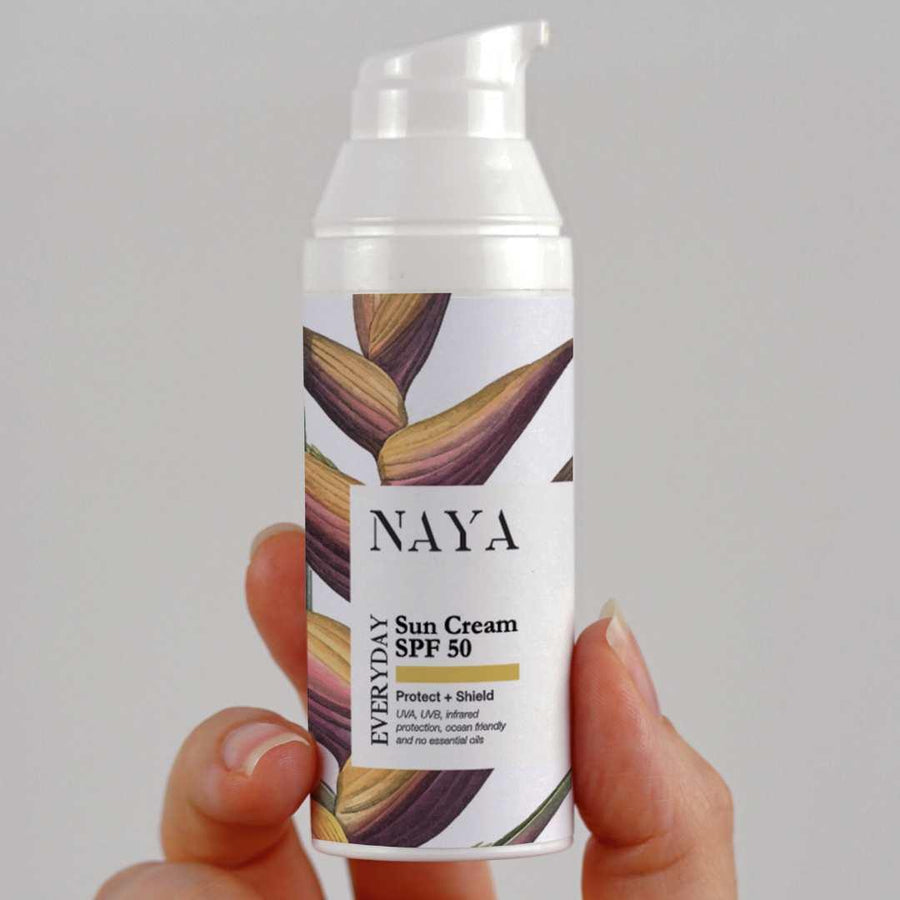
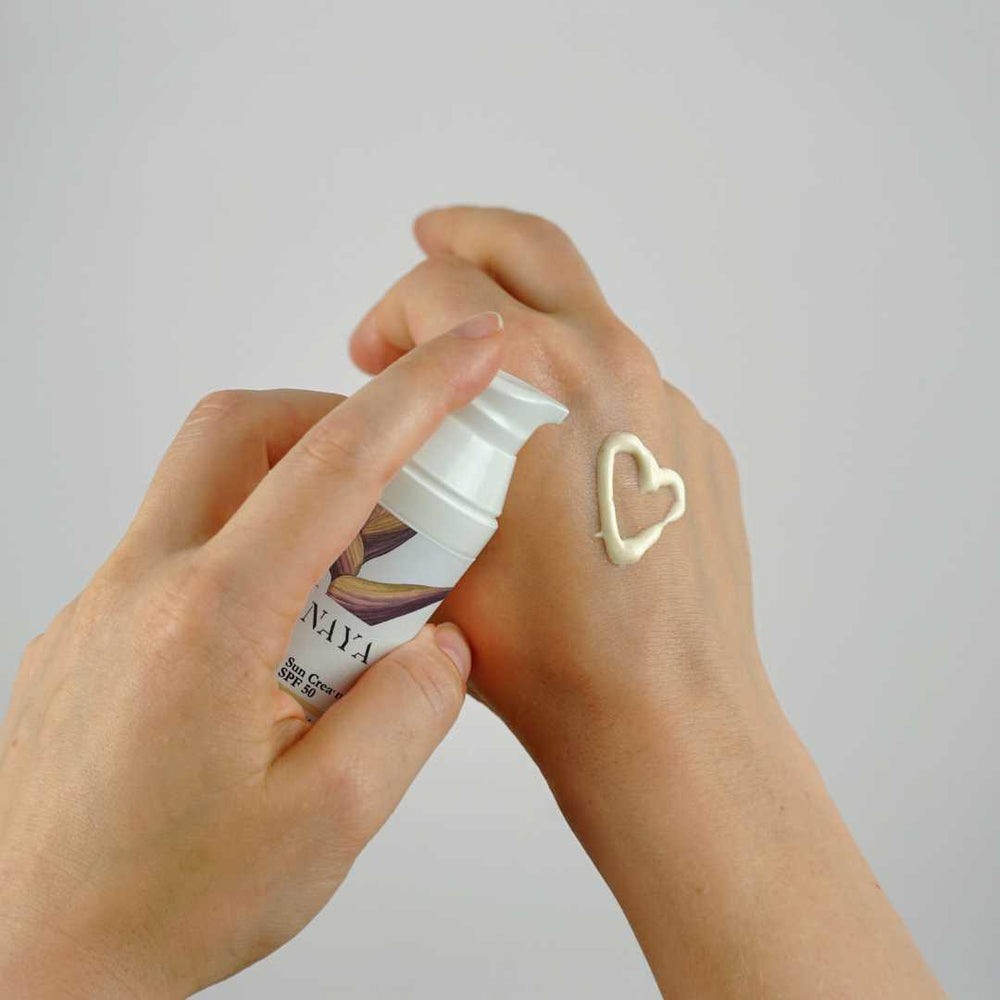
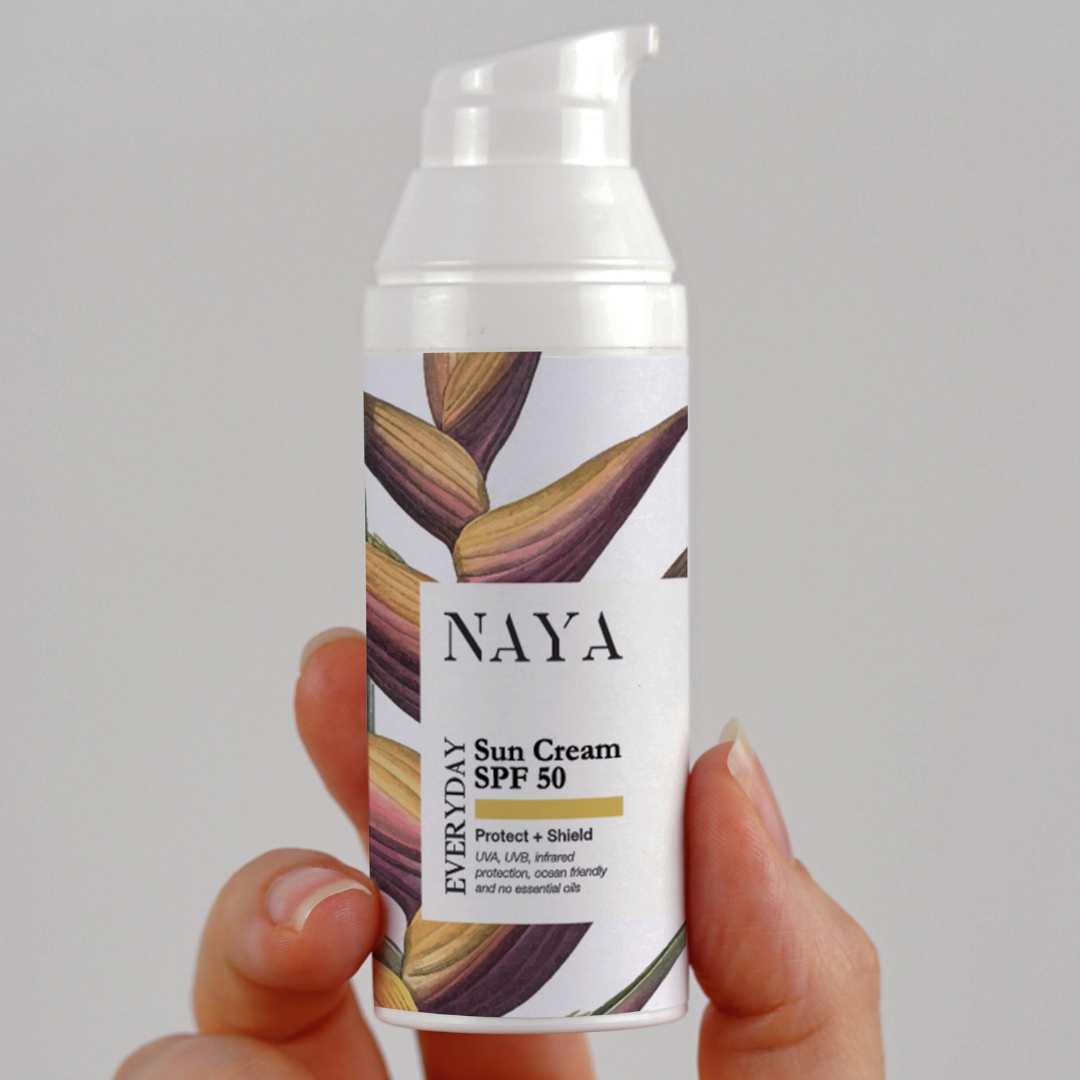
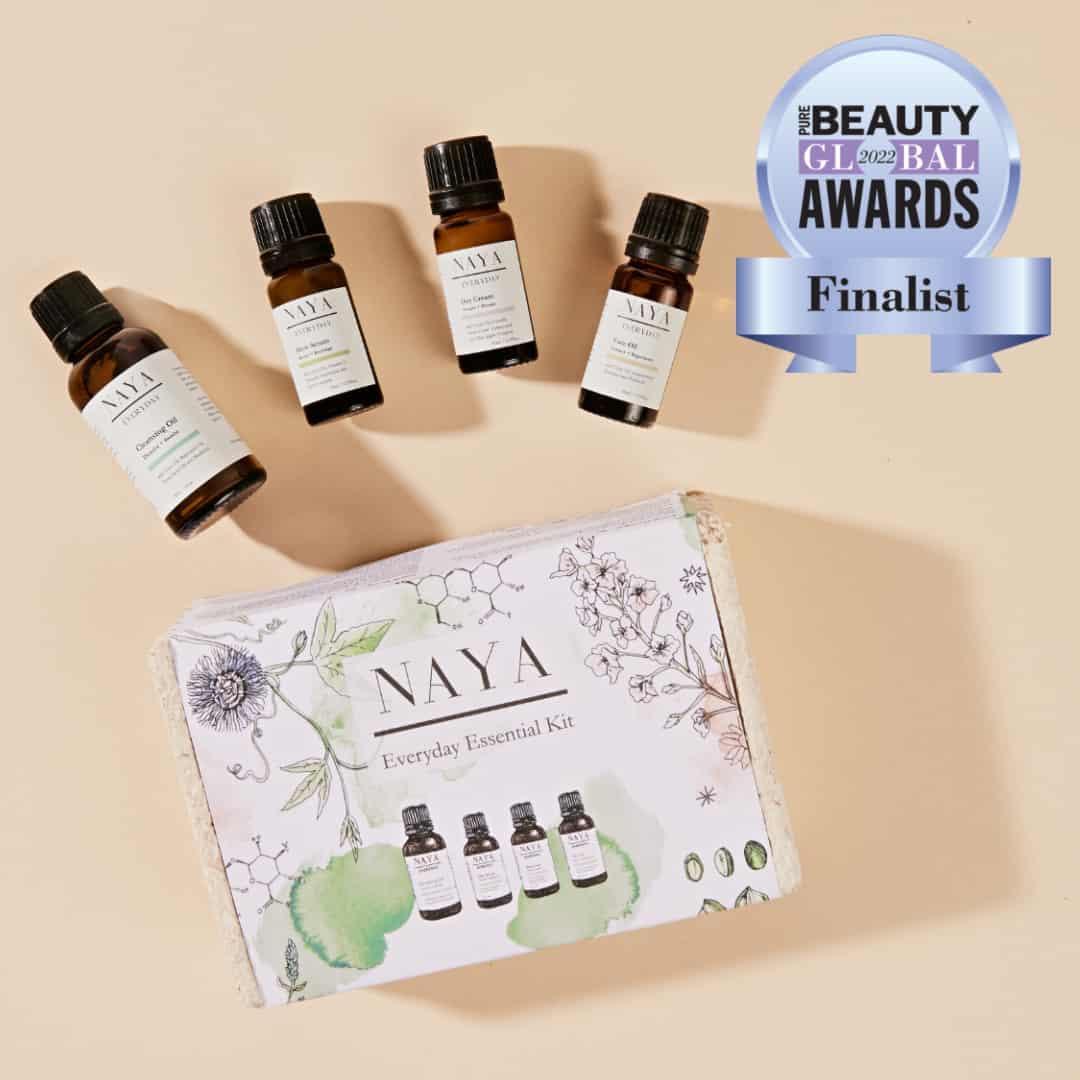

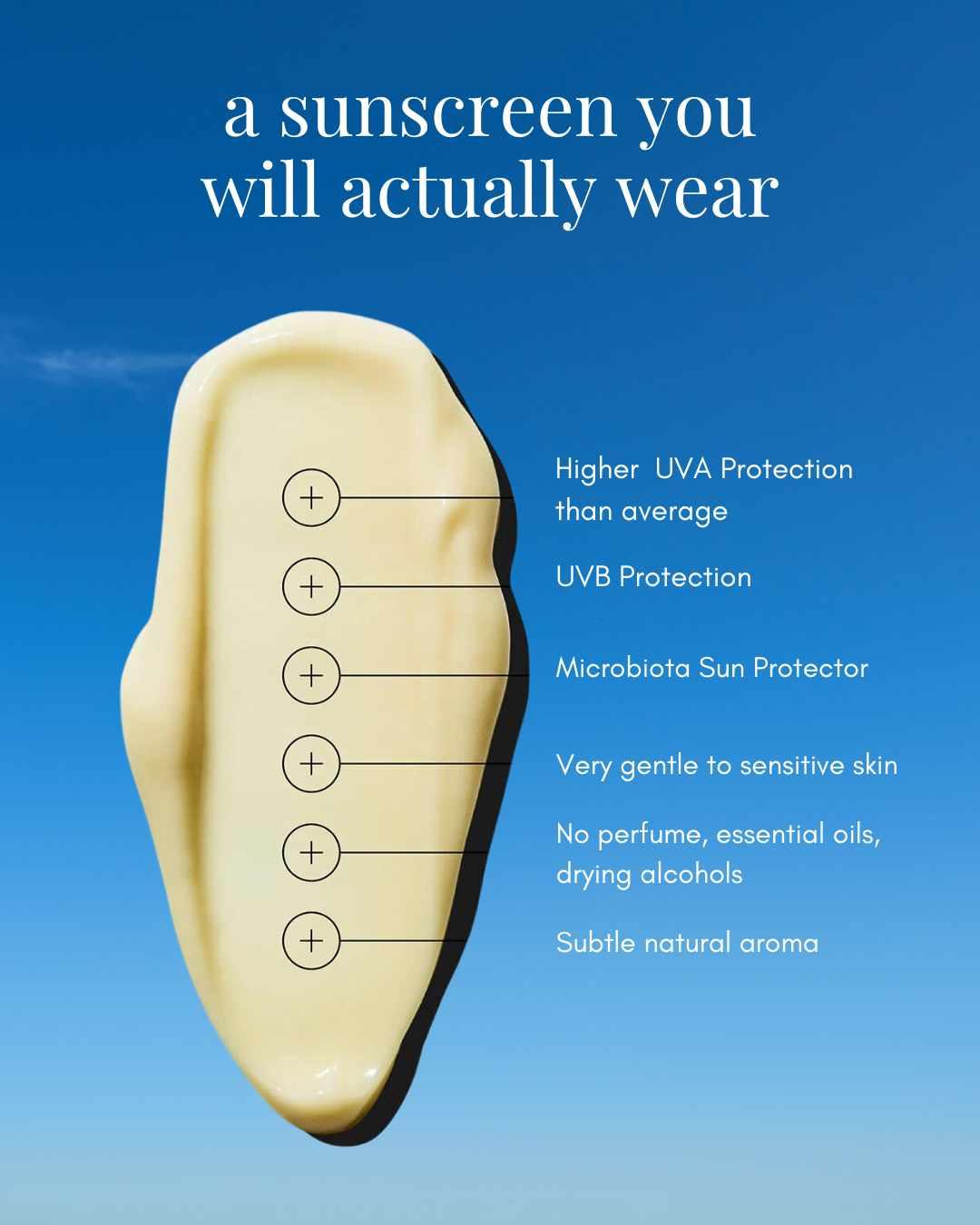


Hinterlassen Sie einen Kommentar